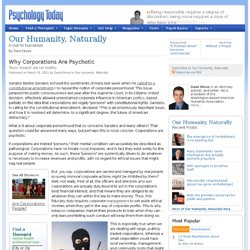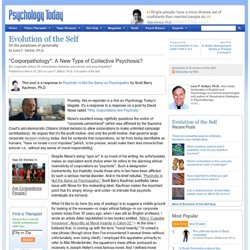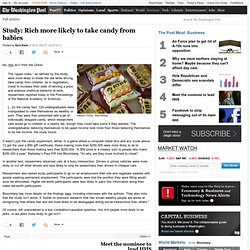

A Town Without Poverty?: Canada's only experiment in guaranteed income finally gets reckoning. September 5, 2011 Canada's only experiment in guaranteed income finally gets reckoning by Vivian Belik The Dominion - Photo: Dave Ron "It would be a major contribution for the functioning of a free society to have independent news sources, free from corporate or state control, internally organized in ways that exemplify what a truly participatory and democratic society would be.

WHITEHORSE, YK—Try to imagine a town where the government paid each of the residents a living income, regardless of who they were and what they did, and a Soviet hamlet in the early 1980s may come to mind. But this experiment happened much closer to home. Until now little has been known about what unfolded over those four years in the small rural town, since the government locked away the data that had been collected and prevented it from being analyzed. But after a five year struggle, Evelyn Forget, a professor of health sciences at the University of Manitoba, secured access to those boxes in 2009. Why corporations are psychotic. Senator Bernie Sanders echoed the sentiments of many last week when he called for a constitutional amendment to repeal the notion of corporate personhood.

This issue jumped into public consciousness last year after the Supreme Court, in its decision, effectively allowed unrestrained corporate influence in American politics , based partially on the idea that corporations are legally "persons" with constitutional rights. Sanders, in calling for the constitutional amendment, declared: "This is an enormously important issue, and how it is resolved will determine, to a significant degree, the future of American democracy.
" What is it about corporate personhood that so concerns Sanders and many others? That question could be answered many ways, but perhaps this is most concise: Corporations are psychotic. If corporations are indeed "persons," their mental condition can accurately be described as pathological. Well, not really. Actually, no. The Tea Party and Corporate Power. "Corporpathology": A New Type of Collective Psychosis?
Possibly, this re-rejoinder is a first on blogsite.

It's a response to a response on a post by David Niose called "Why Corporations Are Psychotic. " Niose's excellent essay rightfully questions the notion of "corporate personhood" (which was affirmed by the Supreme Court's anti-democratic Citizens United decision to allow corporations to make unlimited campaign contributions). He argues that it's the profit motive--and the profit motive--that governs large corporate decision-making today. And he contends that corporations, so far from being identifiable as humans, "have no innate moral impulses" [which, to be precise, would make them less immoral than --i.e., without any sense of moral responsibility]. Despite Niose's being "spot on" in so much of his writing, he unfortunately makes an imprudent word choice when he refers to the alarming ethical insensitivity of corporations as "psychotic".
Jon Voight as Milo Minderbinder in film version of Catch-22. Study: Rich more likely to take candy from babies. (Nelson Ching - Bloomberg) No, this isn’t from the Onion: The “upper class,” as defined by the study, were more likely to break the law while driving, take candy from children, lie in negotiation, cheat to increase their odds of winning a prize and endorse unethical behavior at work, researchers reported today in the Proceedings of the National Academy of Sciences.[...]In the candy test, 129 undergraduates were manipulated to view themselves as wealthy or poor.

They were then presented with a jar of individually wrapped candy, which researchers said would go to children in a nearby lab, though they could take some if they wanted. The undergraduates believing themselves to be upper income took more than those believing themselves to be low income, the study found. It wasn’t just the candy experiment, either. In another test, researchers observed cars at a busy intersection. Bloomberg has more details on the findings here, including interviews with the authors.